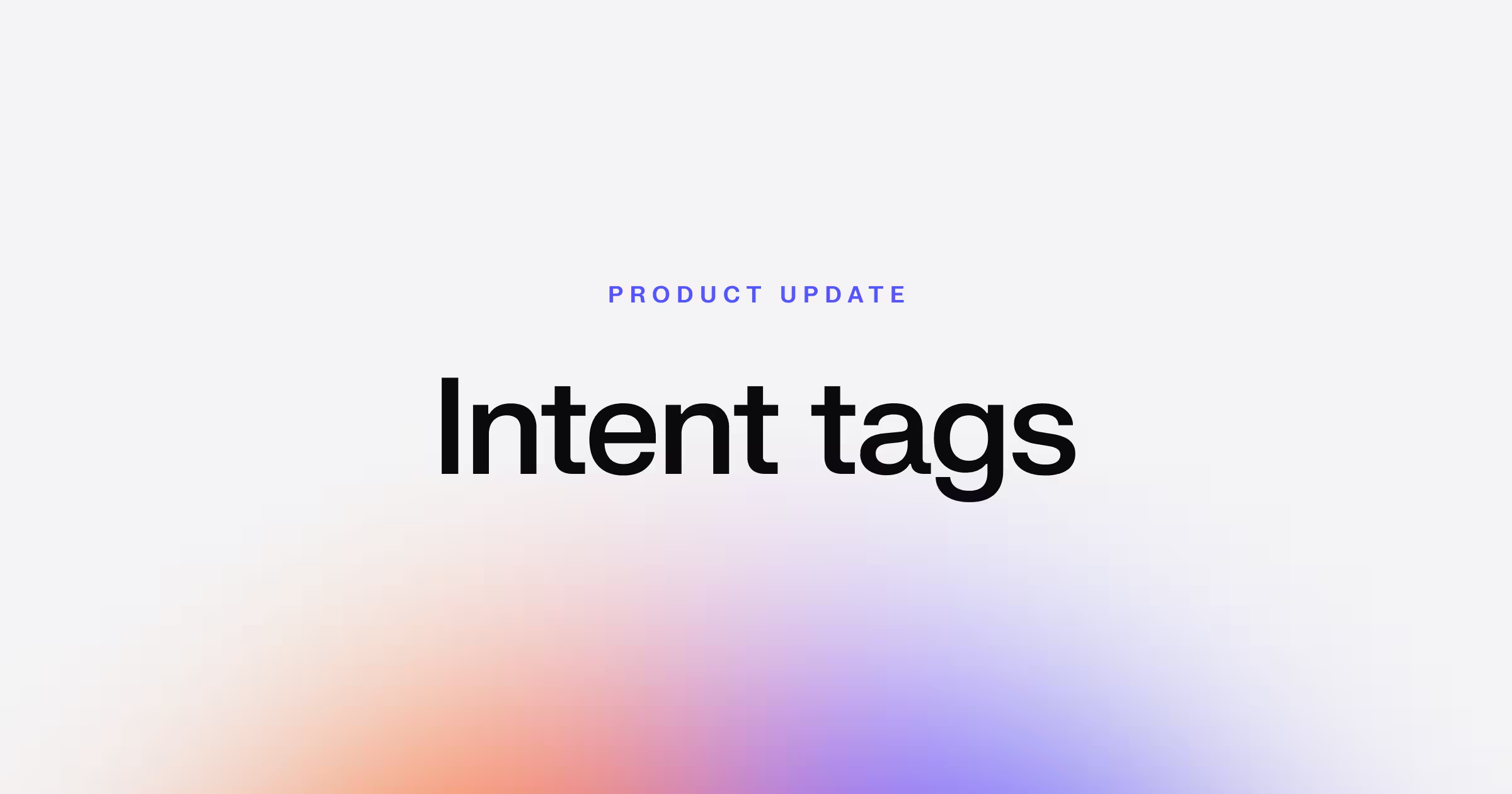







The way your AI agents interact with customers matters. They're often the first point of contact when an order is late, a charge looks off, or a product isn't working as expected. In those moments, the experience needs to be consistent and fully aligned with your brand.
At Decagon, we’ve built a new platform for agent development called Agent Operating Procedures (AOPs). AOPs let teams define agent behavior using natural language in a structured, transparent format. This makes it easier for CX teams to build and iterate on logic directly, without relying on back-and-forth with external professional services to implement critical workflows.
But building logic is just the starting point. To trust agents in production, teams need to know exactly how those AOPs will behave in the real world. That’s where Decagon’s testing infrastructure comes in. Our platform includes a robust suite of tools for validating responses, simulating conversations, and catching issues before they reach customers, so agents are both powerful and predictable.
Delivering predictability to AI agents
When you're building with non-deterministic LLMs, outcomes can be hard to predict. Even small updates like tweaks to logic, changes in prompts, or new business knowledge can subtly shift how an agent responds. Without visibility into those changes, it’s difficult to know what effect they’ll have until they’re already live with customers.
Testing brings that unpredictability into focus. It lets teams see how agents behave before changes are deployed, spot where things might drift off-brand, and catch gaps that aren’t obvious from a single example. With the right testing framework in place, teams don’t have to guess how updates will play out and instead can observe, verify, and refine with confidence.
Tools that bring transparency to every step
AOPs empower CX teams to design complex, multi-step workflows entirely in natural language, without the typical engineering overhead. But what makes AOPs a complete, end-to-end building experience is the integrated testing suite that supports every phase of development.
From quick previews to scheduled simulations, teams have access to tools that validate logic, inspect behavior, and ensure consistent performance before going live.

Real-time previews for instant feedback
As teams build, they can quickly simulate and spot-check conversations in real time, seeing exactly how the AOP will perform across different flows. This immediate feedback loop makes it easy to fine-tune responses and catch edge cases before formal tests are even written.
Unit tests for on-brand responses
Teams can create unit tests to verify that agents consistently produce on-brand, policy-aligned responses. These tests help ensure interactions remain accurate, professional, and compliant with business rules. They also act as safeguards against hallucinations or omissions, catching when the agent invents information or misses something critical.
Integration tests for agent behavior
Our testing suite also supports integration checks, helping ensure that agents trigger the right tools, retrieve the correct data, and take appropriate actions based on context. Whether it’s fetching order history or escalating a support ticket, you can trust the behavior is correct and repeatable.
Simulations at scale
To validate performance at scale, teams can run simulations that model full conversations, from simple FAQs to complex flows like cancellations or billing disputes. Simulations can also be scheduled to run automatically, catching regressions or subtle drift as models or business logic evolve.
Auditable agent execution paths
When deeper inspection is needed, every AOP provides a full, step-by-step execution trace. This transparency allows teams to debug specific scenarios, verify decision paths, and build confidence that agents behave as expected in any context.
Continuously iterate with confidence
Customer policies, product details, and business priorities are always evolving—and your agents need to keep up. AOPs are built for this kind of change, making it easy to update logic as things shift.
That’s why testing isn’t a one-time step, but a continuous process that gives teams confidence as they iterate. With testing built into the development workflow, teams get fast, actionable feedback on what’s working and what’s not. You’ll know immediately if something breaks or starts behaving unexpectedly—long before it reaches a customer.
That means:
- No surprises or unintended changes when updating logic
- Fast feedback loops that help teams iterate quickly and safely
- Ongoing confidence that agents remain consistent, reliable, and on-brand
With Decagon’s integrated testing tools, teams don’t have to slow down to stay safe—they can adapt, experiment, and ship with clarity at every step.
Trust and safety as an AI foundation
We believe the future of customer experience won’t just be powered by AI, but by trustworthy AI. That trust is earned through transparent logic, robust simulation, and a culture of test-driven development.
At Decagon, we’re building the infrastructure that makes them safe, reliable, and scalable by default. In addition to a powerful testing suite, our platform includes built-in guardrails, deep observability into agent reasoning, and always-on QA through Watchtower. We also rigorously evaluate the latest models before deploying them into production, so your agents remain consistent even as the underlying systems evolve.
If you’re ready to build agents your team and your customers can trust, schedule a demo with our team. We’ll show you how Decagon brings transparency, safety, and control to every step of the agent lifecycle.








